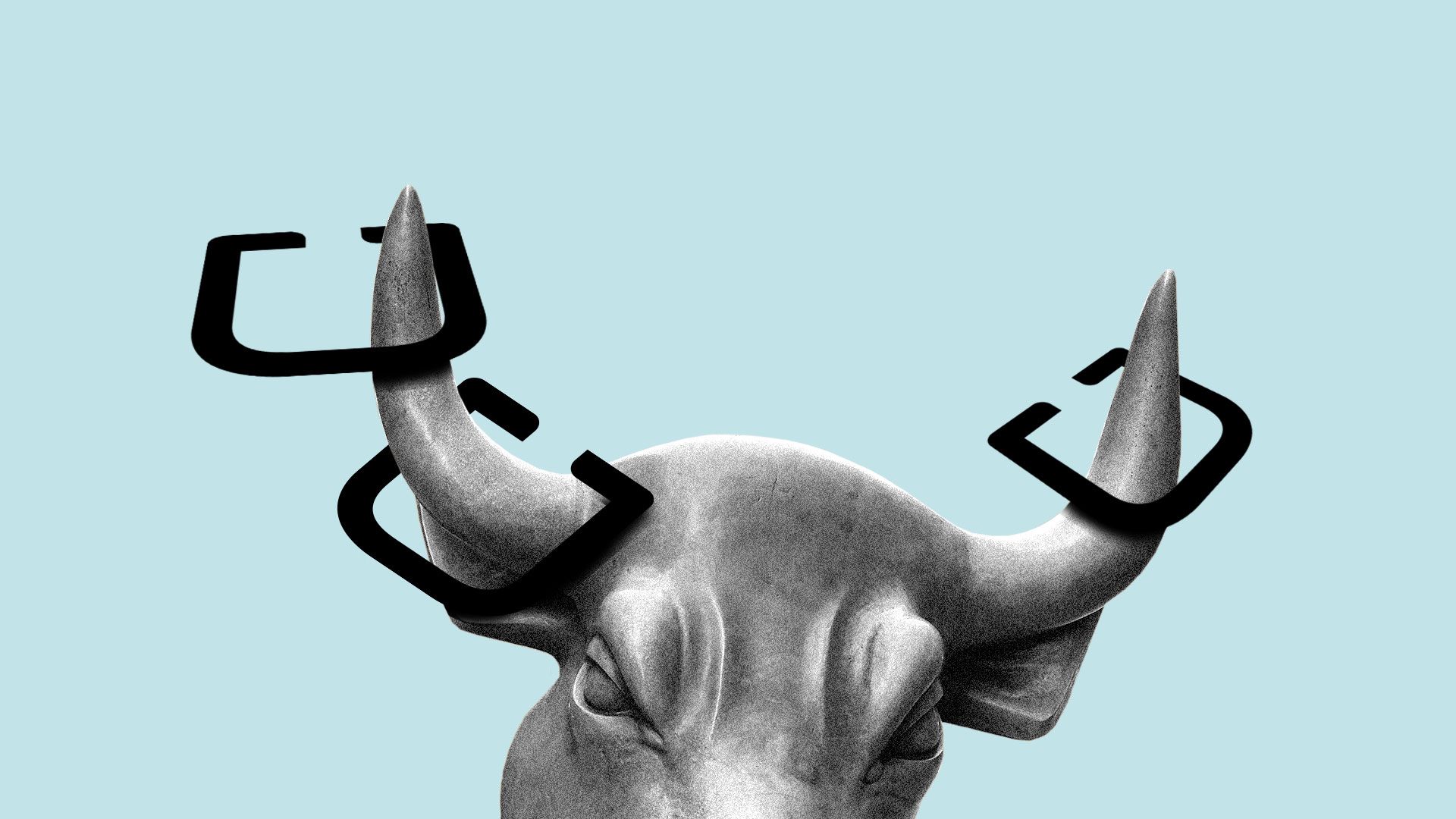
Uber on Thursday filed for its long-awaited IPO, on the heels of a recent listing for smaller ride-hail rival Lyft.
The bottom line: Uber filed to raise $1 billion, but that is said to be a placeholder for actual plans to raise $10 billion. That latter number would be the eighth-largest U.S. IPO of all time.
Uber plans to trade on the New York Stock Exchange under ticker symbol UBER.
We're still a couple of weeks away from getting formal word on share price, but reports are that it plans to seek an initial market valuation of between $90 billion and $100 billion.
- If it were to hit that top mark, it would become the 30th most valuable company listed on a U.S. exchange, topping such names as ConocoPhillips and General Electric. It also would be larger than the two Wall Street banks leading its IPO, Morgan Stanley and Goldman Sachs.
- There had been talk last year of a $120 billion valuation expectation, but that was coming from bankers trying to win the deal. It was as much a reflection of boisterous salesmanship as it was of Uber's public prospects.
- Lyft shares closed today at $61.01, up 1.48% on the day but down over 15% from its IPO price. Lyft's current market cap is around $20.6 billion.
By the numbers:
- Uber generated $11.27 billion in 2018 revenue, up 42% from 2017 and 193% from 2016.
- $9.2 billion of that 2018 revenue came from ride-share. Uber Eats generated $757 million, while Uber Freight did $125 million in just the fourth quarter.
- It was technically profitable in 2018 thanks to divestitures of its Russia and Southeast Asia operations, but had an operating loss of around $3 billion.
- It had of $6.4 billion cash on hand as of year-end, and $6.9 billion of long-term debt.
- There are a total of 29 banks listed on the IPO, including Morgan Stanley and Goldman.
- CEO Dara Khosrowshahi last year earned a base salary of $1 million, plus a $2 million bonus and around $40 million in stock awards.
- Uber reports a 15.4% ownership stake in Chinese ride-hail rival Didi Chuxing, a 23.2% stake in Southeast Asia's Grab and a 38% stake in Russia's Yandex Taxi venture. These holdings largely prevent Uber from competing in those markets for the next four years (or six years, in the case of Russia).
- Its largest outside shareholder is SoftBank with a 16.3% stake. Other major shareholders include Benchmark (11%), Expa (6%), Saudi Arabia's Public Investment Fund (5.3%), and Alphabet (5.2%). Former CEO Travis Kalanick has an 8.6% position.
- Uber will provide qualifying drivers with cash rewards of between $2,500 and $10,000, based primarily on the number of trips driven. Qualifying U.S. drivers also will have the option to buy a limited number of shares in the IPO, without lock-up restrictions.
Risk factors
Uber acknowledges that successful efforts to reclassify its drivers as employees, as opposed to contractors, "would have an adverse effect on our business and financial condition."
- It also has concerns about another spate of bad press like it received in 2017, when a controversy related to President Trump's travel ban caused "hundreds of thousands" of Uber users to stop using the platform.






